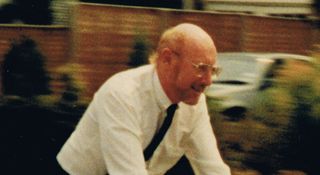Computer pioneer Sir Clive Sinclair dies aged 81
Tributes pour in for the inventor that 'kick started' consumer electronics in the UK

Sir Clive Sinclair, the British inventor that helped to make home computing popular in the 1970s, has died at the age of 81.
Sinclair, who invented the ZX series of computers and the pocket calculator, died at his home in London on Thursday morning after a long illness.
In his later years, Sinclair revealed that he rarely used computers himself as he didn't like the distraction they would cause as he inevitably came up with ways to change and tweak them. His daughter, Belinda Sinclair, revealed to the BBC that he was still working on his inventions in the weeks leading up to his death.
"That was what he loved doing," she said. "He was inventive and imaginative and for him it was exciting and an adventure, it was his passion."
Lord Alan Sugar paid tribute to Sinclair on Twitter for "kick starting" consumer electronics in the UK with his inventions, while professor Brian Cox revealed that his first introduction to computing was through Sinclair's ZX81 home computer.
However, the most glowing tribute came from gamemaster and radio host, Dominik Diamond, who said that Sinclair's influence on the world "could not be exaggerated".
Sinclair left school at 17 to found 'Sinclair Radionics', working as a technical journalist initially to help fund the venture. In the early 70s, he designed a series of calculators that were small and light enough to fit into a pocket. This was considered the first time the technology became truly portable, with most existing models at the time being much larger.
Get the ITPro. daily newsletter
Receive our latest news, industry updates, featured resources and more. Sign up today to receive our FREE report on AI cyber crime & security - newly updated for 2024.
His first home computer was the ZX80, named after the year it appeared in shops. It cost £79.95 in its kit form, or £99.95 fully assembled, which was significantly less than other computers available at the time. This model would go on to ship 50,000 units, with it's successor, the ZX81, selling 250,000 units a year later.
Both devices helped to introduce a number of veterans in the gaming industry to computing, particularly with games such as 3D Monster Maze and Mazogs.
The success also gave Sinclair a way to fund other projects, although not all of these were major hits. In 1985, he released the C5 electric vehicle, resembling a futuristic go-kart, which didn't quite take off and cost Sinclair most of his fortune. This eventually forced him to sell his computer business to Amstrad.
Reviews at the time expressed concerns about the safety of the C5 vehicle, although his daughter suggested the invention was simply ahead of its time.
"I think sometimes he was a bit too early [with his inventions]," his daughter said, according to the BBC. "He was very good at imagining things that people might like or might need, even though they didn't know they wanted them."
Similarly, Sinclair also invented a pocket TV, the TV80, another gadget that flopped in 1980 but was arguably a precursor to the modern smartphone.
"It was the ideas, the challenge, that he found exciting," his daughter said. "He'd come up with an idea and say, 'There's no point in asking if someone wants it, because they can't imagine it.'"
Bobby Hellard is ITPro's Reviews Editor and has worked on CloudPro and ChannelPro since 2018. In his time at ITPro, Bobby has covered stories for all the major technology companies, such as Apple, Microsoft, Amazon and Facebook, and regularly attends industry-leading events such as AWS Re:Invent and Google Cloud Next.
Bobby mainly covers hardware reviews, but you will also recognize him as the face of many of our video reviews of laptops and smartphones.





